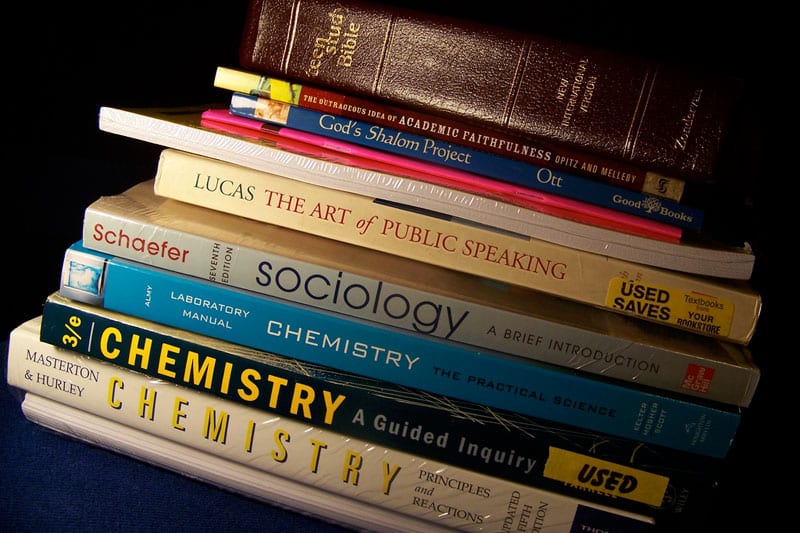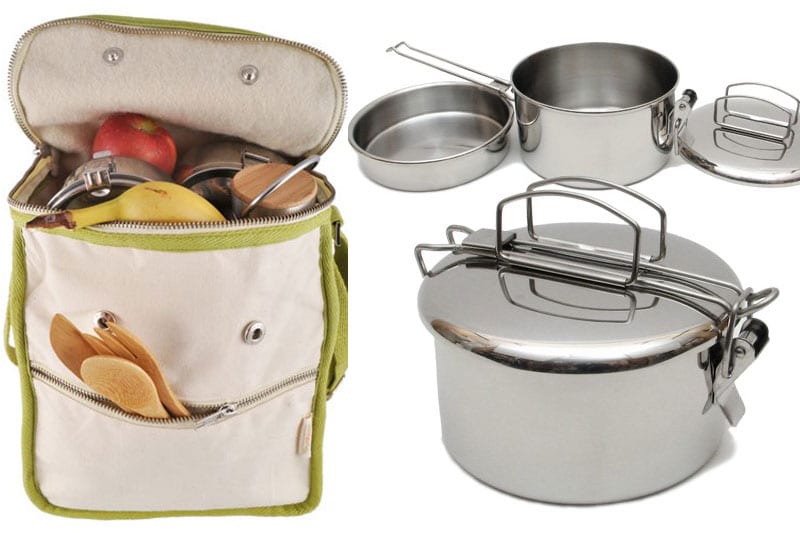This summer, did you swim, surf, snorkel, or dive deep into the ocean? If you’re like me, you may have realized that when you’re in the ocean, you are completely immersed in a foreign environment. You’re in a different realm, one that belongs to creatures that we don’t see on a regular basis. You may be at the mercy of waves, coral, and riptides. You’re completely helpless and humbled by your surroundings, and yet you can still do so much damage to the ocean by your actions and lifestyles on land. How can a body so vast and deep be so affected by humans? Even though we live outside of the ocean, we are connected to it, just like we are connected to all natural environments. The lifestyle choices we make can and will impact creatures, humans, and ecosystems near and far. That’s why Bodhi Surf + Yoga has brought you seven tips to increase your sustainability on campus and in the classroom. Keep reading to find out how you can be an Ocean Guardian at school!

1. Sign Bodhi’s Ocean Guardian Pledge
Once you do, you’ll receive monthly emails of useful information to help you lower your impact and help protect our oceans. Share with your friends and family so that they too sign the pledge and commit to healthier, more beautiful oceans.
2. Buy eco-friendly and non-toxic supplies
Backpacks, lunch boxes, and binders often contain vinyl which the United States Congress has banned in children’s toys but not yet in school supplies. Vinyl or PVC can cause a number of health issues including asthma, learning disabilities, and chronic health problems. Another item to be aware of are crayons which, when imported from China, have been found to be contaminated with asbestos — when purchasing crayons, make sure they are manufactured in the United States. Check out the resources below to find some safe options for back-to-school products for your family.

Photo c/o Flickr
3. Buy used or electronic textbooks
There are two main reasons why I recommend this.
- It’s cheaper for you! If you can find a gently used textbook then you can expect to pay around 20% less than a brand new one.
- If you’re planning on highlighting and annotating in a book, why bother with a brand new one?
You can also sell your books back at the end of the semester and get a few dollars back. Electronic textbooks are another great option because there’s no paper involved, so they are cheaper and better for the environment. Additionally, my mother kept my older brother’s books from middle and high school because chances were, I would be assigned the same book a few years later.
4. Walk, bike, or take public transit to school
Not everybody has the luxury of living close to where they attend school, but if you do, opt in for a bit of exercise and reduce your emissions. The other day, I met a retired Physical Education teacher that set the example every day of his thirty years of work and biked eighteen miles to school everyday (and back). Think of all of the money he saved on gas, emissions he kept from his local environment, and inspiration he gave to his students. If neither walking nor biking are options, consider taking public transit in order to save money and energy. Dedication to your health and the environment is all it takes; commit to leaving the car at home.

Photo c/o Life Without Plastic
5. Avoid single-use packaging in your lunch
This is also meant to encourage you to bring your lunch from home. When you go out to eat you will end up spending way more money. Getting food to-go often means single use packaging, more trash, and more stress on the environment. If you bring your lunch with reusable packaging you can greatly reduce your footprint. When packing a lunch, we want to avoid single use packaging such as plastic sandwich bags, pre-packaged lunch options, etc. There is a reusable option for just about every type of lunch packaging, so invest in a few at the beginning of the school year and make sure they make it back home each day.
6. Bring your own water bottle
Hydration is important for staying focused and healthy during the school year but water bottle plastic can be extremely damaging to both land and marine ecosystems. According to the Container Recycling Institute, “The process of producing bottled water requires around 6 times as much water per bottle as there is in the container.” The organization Plastic Oceans states that “more than 8 million tons of plastic are dumped into our oceans each year”. Do your part to stop this negative trend and make sure you bring your own reusable BPA free water bottle instead of using plastic one time use bottles. I prefer to use a Nalgene because I’m clumsy and it won’t break when I drop it. They are also made in the U.S., and don’t have to travel far to get to me.

Photo c/o Pexels
7. Green your printing
The easiest way to green your printing process is, first and foremost, to not print. If you can help it, send files as PDFs, take notes on your computer, and take pictures of the instructor’s presentations with your phone. If you absolutely need to print, use recycled paper, or notebooks, print on both the front and the back, and try to consolidate the text by making margins smaller. Through these feasible steps, we can decrease the demand for bleached, mass-produced paper.
How are you an Ocean Guardian at school?
There are so many other things we can do to be Ocean Guardians at our schools. If you have any additional advice or suggestions please feel free to leave them in a comment section below. We would also love to hear what you are doing to be an Ocean Guardian: make a video of your environmental efforts for the 2017 Ocean Guardian Contest Bodhi will host starting in October. You could win a 7-day Surf and Yoga Bodhi Session and many other prizes from the #OGContest2017 sponsors such as Patagonia, Klean Kanteen, Jungle Mama Sunscreen and much more. Best of luck Ocean Guardians!
Written by Katie Jones
Change the heading on the Separator tab ->
Search
Change the heading on the Separator tab ->
Most Read Blogs
What is the Meaning of Anjali Mudra?
May 27, 2020
Fitness for Surfers: Workouts, Exercises & Training
February 10, 2022
The Best Places to Eat in Uvita, Costa Rica
May 19, 2022
How to Get From SJO to Costa Ballena, Costa Rica
May 31, 2018
Change the heading on the Separator tab ->
Categories
Categories
- Bodysurfing (5)
- Food (7)
- Responsible Business (6)
- Surfing (64)
- Travel (65)
- Yoga (41)
Change the heading on the Separator tab ->
Newsletter
Thanks for subscribing! Please check your email for further instructions.
Change the heading on the Separator tab ->
Follow Us
Bodhi Surf + Yoga
Change the heading on the Separator tab ->
Read more
Why an Award-Winning Costa Rica Surf + Yoga Camp Doesn’t Have Air Conditioning
Words by George Frost
One of the things that our guests highlight on review platforms like Tripadvisor is that our lodge is simple, comfortable, and at one with the environment. Everything about our lodge is intentional…
Bodhi Surf + Yoga’s Third B Corp certification
Words by George Frost
One of the things that most defines us here at Bodhi Surf + Yoga is our commitment to using our business as a force for good. Throughout our 13 years of operating,…
2022 Sustainability Initiatives
Words by George Frost
One thing that we take extremely seriously here at Bodhi Surf + Yoga is our commitment to our community and the world. We’re built on an ethos of social and environmental responsibility…



